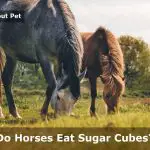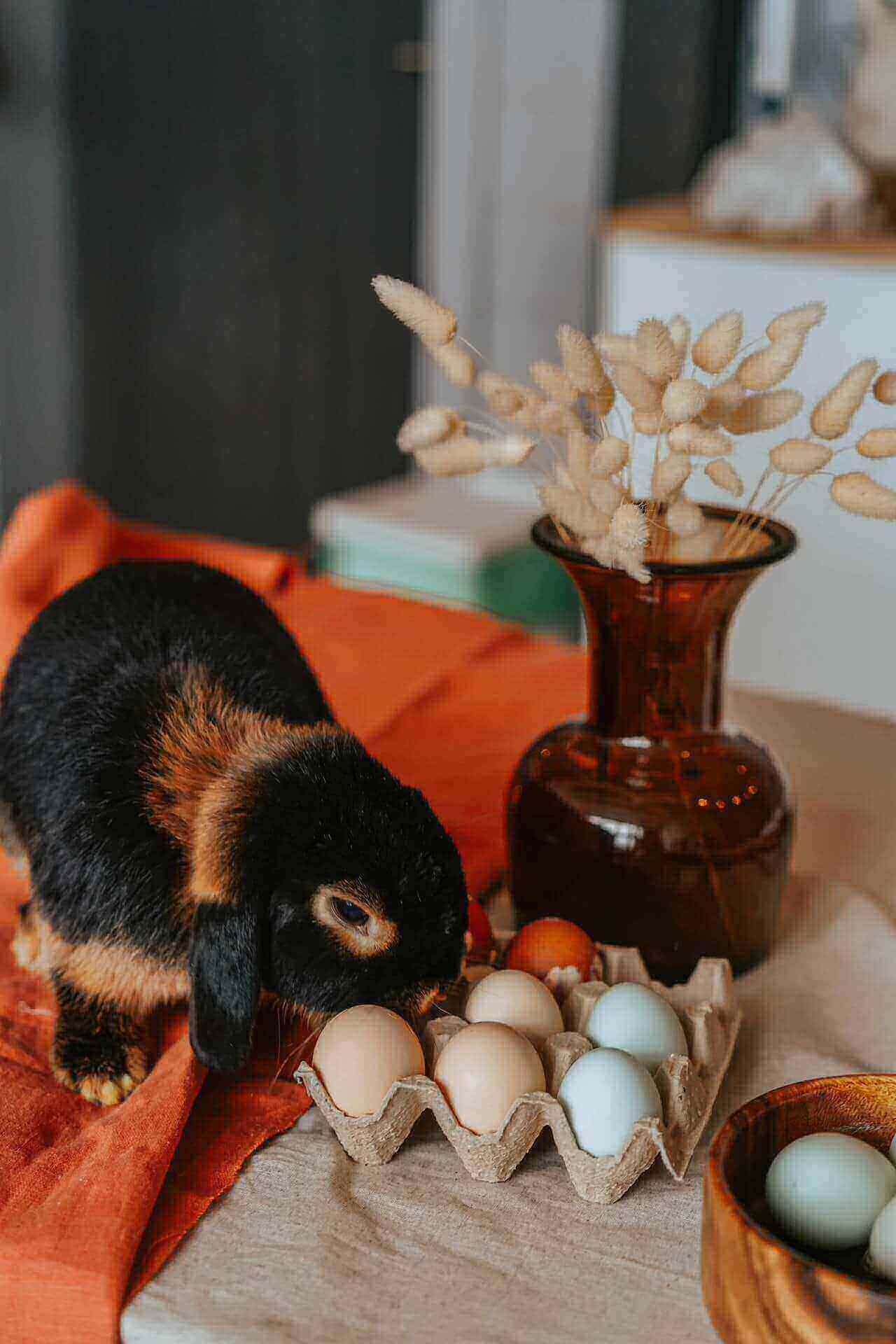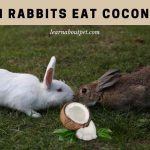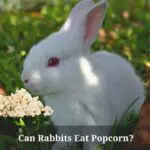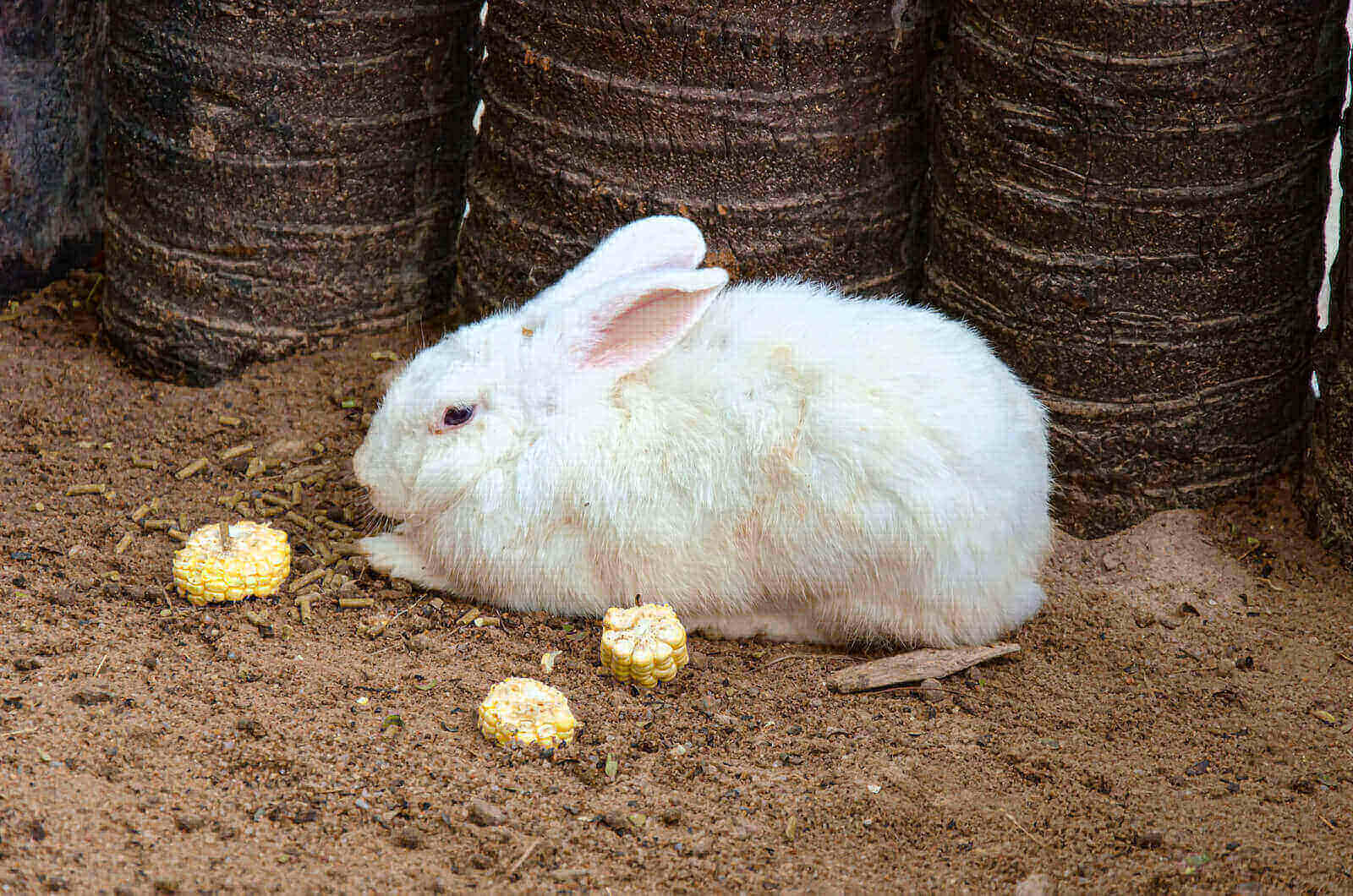Honey is one of the most delicious and nutritious foods for us humans. But what about ferrets? Is it alright for ferrets to eat honey? Read on, to find out.
Can ferrets eat honey? No, ferrets should eat honey as a food. The amount of sugar in honey is too much for ferrets. But ferrets that are having seizures due to insulinoma may be given a little honey (on their gums) as first aid.
Feeding ferrets on honey routinely is, however, a very bad idea.
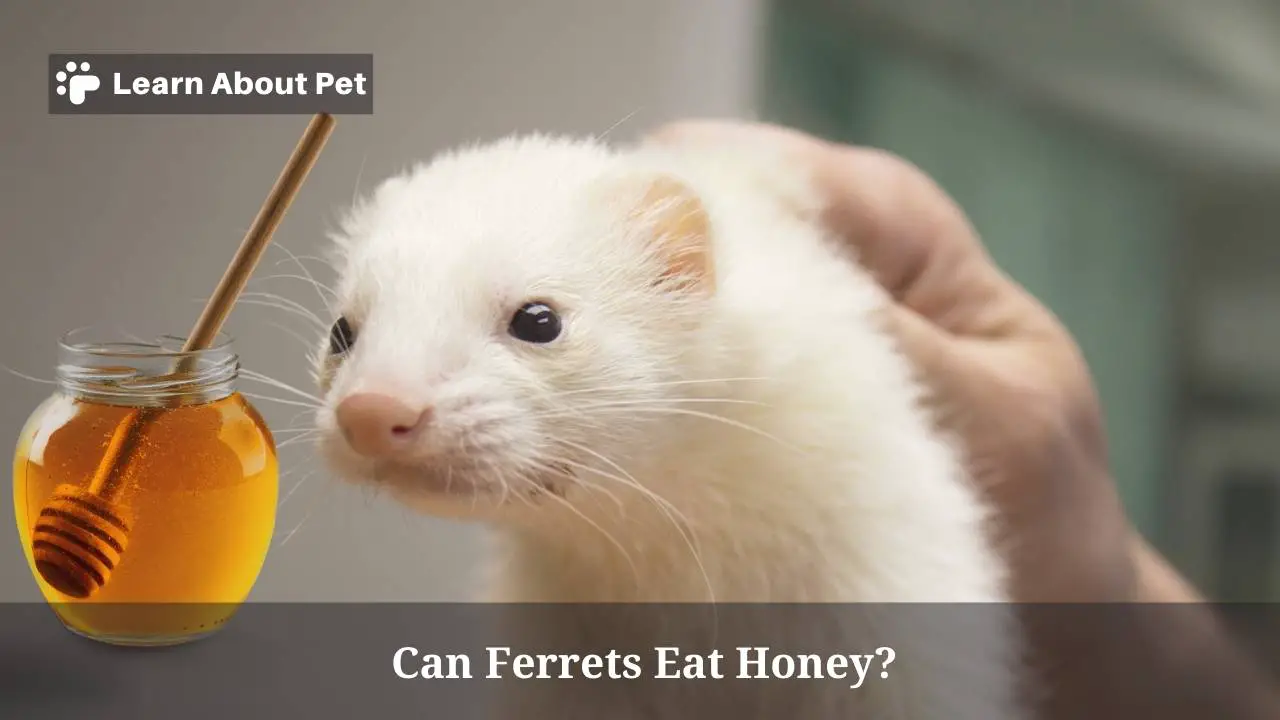
Is Honey Safe For Ferrets?
Honey as a food is not safe for ferrets. Ferrets are obligate carnivores, and foods like honey are not suitable for them.
Honey can only be helpful, as first aid, to ferrets that are having seizures due to insulinoma.
Is Honey Beneficial For Ferrets?
As a food, honey is not really beneficial for ferrets. Ferret’s short digestive systems are unable to break down honey properly, and get the nutrients that honey is rich in.
The only exceptional circumstance under which honey can be beneficial for ferrets is if they are having seizures due to insulinoma. In that case, applying a little honey to the ferret’s gums, followed by a high protein food, can be helpful.
Can Ferrets Be Fed On Honey?
Ferrets shouldn’t be fed on honey.
Honey is neither safe nor really beneficial as a food for ferrets.
Therefore feeding ferrets on honey is not a good idea.
Even a small amount of honey can cause very considerable harm to a ferret. Therefore there is really no question on how much honey is too much for ferrets: because even little honey can harm them.
And if you were wondering, can ferrets eat honey daily, then obviously the answer is ‘no’. They shouldn’t even eat it at all.
Can Adult Ferrets Eat Honey?
Adult ferrets should not eat honey. Eating honey has potential to harm the ferrets both in the short run and in the long term.
Thus honey is not a suitable food for adult ferrets. That is unless they are adult ferrets that are having seizures due to insulinoma, and in which case applying some honey to their gums can help.
Can Baby Ferrets Eat Honey?
No, baby ferrets should not eat honey.
Allowing a baby ferret to eat honey can lead to major health problems, starting with diarrhea and stomach upset. Therefore baby ferrets should not eat honey.
Is There Any Type Of Honey Ferrets Can Eat?
Honey comes in several forms. What we now need to find out is whether any of those forms of honey is suitable for ferrets to eat.
We will start with raw honey, before turning to honey comb and milk sweetened with honey.
Can Ferrets Eat Honey Raw?
Ferrets should not eat raw honey.
Because they are obligate carnivores, honey is a very unnatural (and pretty much impossible to digest) food for them.
Therefore ferrets should not be fed on raw honey.
Can Ferrets Eat Honey Comb?
Ferrets cannot eat honey comb.
If they are offered honey comb to eat, most ferrets will tend not to show much interest in it. But even if they show interest in eating it, honey comb is not a suitable food for ferrets. It can harm them.
Can Ferrets Drink Milk With Honey?
Milk that is sweetened using honey is not suitable food for ferrets.
Such milk can leave the ferrets with health issues, hence the reason why you shouldn’t offer ferrets milk with honey.
Why Is Honey Bad For Ferrets?
Milk is bad for ferrets because it has potential to make them ill.
Ferrets are obligate carnivores, for whom foods with sugar (like honey) are completely unsuitable.
Final Verdict – Can Ferrets Eat Honey
Ferrets should not eat honey. Honey contains more sugars than ferret bodies can ever handle. The ferrets are obligate carnivores, and eating honey can leave them quite sick.
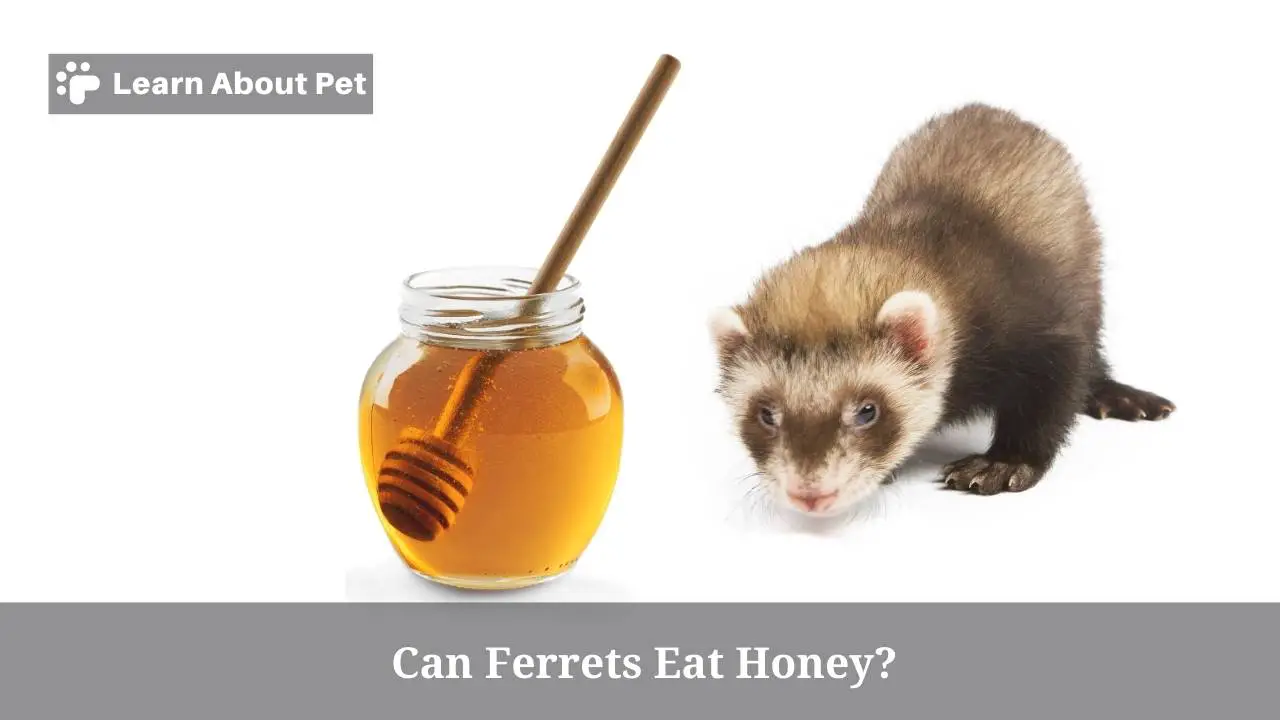
The only exceptional circumstance under which a little honey can be helpful to a ferret is if the ferret is having a seizure due to insulinoma. Then honey may be good first aid.
Historically, Honey is, however, not a proper food for ferrets to eat routinely.
As a pet lover, make sure to learn about pet more and give your pet hamsters a good and comfortable life!

Welcome to Learn About Pet. My name is Rajkumar Ravichandran and I love all pets, travel, and amazing food. I write about my passion and personal experience caring for multiple pets in this blog! ❤️
Post Disclaimer
DISCLAIMER: THIS BLOG OR WEBSITE, "Learn About Pet", DOES NOT PROVIDE YOU WITH MEDICAL ADVICE AND IS NOT A SUBSTITUTE FOR MEDICAL ADVICE. ALWAYS GET IN TOUCH WITH YOUR PERSONAL VETERINARIAN AND USE INFORMATION HERE AS GENERAL ADVICE.
The information, including but not limited to, text, graphics, images and other material contained on this website are for informational purposes only. No material on this site is intended to be a substitute for professional veterinary advice, food recommendation, diagnosis, or treatment. Always seek the advice of your veterinarian or other qualified health care provider with any questions you may have regarding a medical condition or for pet food related questions.
